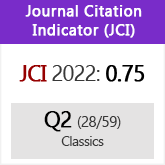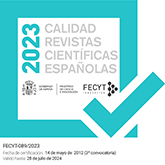Ancient Greek and Indian theatres: their origin in choral dances, which represent old myths by means of mimesis
DOI:
https://doi.org/10.3989/emerita.2012.01.1132Keywords:
ancient Greek theatre, ancient Indian theatre, choral dances, origin of theatreAbstract
Regarding the subject of the origin of Greek theatre, especially of tragedy, the author insists in defending the theory already published by him in several occasions, according to which it would have been originated in choral, religious dances, which represent myths by means of an old mimesis. Aristotle suggested choral lyric as its origin, but he did it in a superficial manner. The author develops his theory in detail and speaks of the necessity of using information found in Greek theatre plays themselves: lyric unities and their organization as theatre plays, adding the recitation of the choreutae to choral passages. He proves all this with parallel facts found in Indian theatre by Prof. Gupt, from New Delhi, as well as with the correlation that the author sets between these evidences and the Greek ones: mimetic dance, rite and myth.
Downloads
References
Adrados, F. R. 1967: «, T. Sobre los orígenes griegos el teatro», Emerita 35, pp. 249-264.
Adrados, F. R. 1969: «Ideas metodológicas para el estudio de la evolución y sentidodel teatro griego», Revista de la Universidad de Madrid 18, pp. 299-319.
Adrados, F. R. 1972: Fiesta, Comedia y Tragedia. Sobre los orígenes griegos del teatro, Barcelona, Planeta (traducción inglesa: Festival, Comedy and Tragedy, Leiden, Brill, 1975); nueva edición en Madrid, Alianza Universidad, 1983.
Adrados, F. R. 1974: «The agon and the origin of tragic chorus», en Heller, J. L. (ed.), Serta Turyniana. Studies in Greek Literature and Palaeography in honor of Alexander Turyn, Urbana-Chicago-Londres, University of Illionis Press, pp. 108-121.
Adrados, F. R. 1987: «Rite, mythe et théâtre en Grèce ancienne», en Ghiron-Bistagne, P. (ed.), Anthropologie et Théâtre antique. Actes du colloque international de Montpellier (6-8 mars 1986), Cahiers du GITA 3, Montpellier, Centre National des Lettres, pp. 37-52 (recogido en español en Adrados 1999, pp. 29-54).
Adrados, F. R. 1996: «El origen del teatro español en Salamanca», en Salamanca y la Literatura. Ciclo de conferencias pronunciadas en Fundación Ramón Areces (Febrero 1996), Madrid, Fundación Ramón Areces, pp. 13-38 (recogido en Adrados 1999, pp. 264-286).
Adrados, F. R. 1999: Del teatro griego al teatro de hoy, Madrid, Alianza.
Adrados, F. R. 2005: «Le origini della tragedia: ¿Aristotele o ricostruzione interna e paragone?», en Grisolia, R. y Rispoli, G. M. (eds.), Il personaggio e la maschera. Atti del Convegno Internazionale di Studi, Nápoles, Naus, pp. 95-102.
Adrados, F. R. 2008: «¿Aristóteles o reconstrucción interna y comparación? Sobre los orígenes de la tragedia », en Doménech, F. (ed.), Teatro español. Autores clásicos y modernos. Homenaje a Ricardo Doménech, Madrid, Fundamentos, pp. 341-350.
Álvarez de Miranda, A. 1962: Ritos y juegos del toro, Madrid, Taurus.
Bajtin, M. 1971: La cultura popular en la Edad Media y el Renacimiento, Barcelona, Barral.
Caro Baroja, J. 1963: El Carnaval, Madrid, Taurus.
Caro Baroja, J. 1974: Teatro popular y magia, Madrid, Revista de Occidente.
Caro Baroja, J. 1979: La estación del amor, Madrid, Taurus.
Epton, N. 1968: Spanish Fiestas. Including romerías, excluding bullfights, Londres, Casell.
Gupt, B. 1994 [32006]: Dramatic Concepts, Greek and Indian. A Study of Poetics and N__ya__stra, Nueva Delhi.
Kindermann, H. 1980: Theaterpublicum des Mittelalters, Salzburgo, Otto Mu_ller.
Ladero, M. Á. 2004: Las fiestas en la cultura medieval, Barcelona, Mondadori.
Lázaro Carreter, F. 1970: Teatro Medieval, Madrid, Castalia.
Silva, H. y Roman, S. 2000: El libro de las tradiciones, Barcelona, Robinbook.
Downloads
Published
How to Cite
Issue
Section
License
Copyright (c) 2012 Consejo Superior de Investigaciones Científicas (CSIC)

This work is licensed under a Creative Commons Attribution 4.0 International License.
© CSIC. Manuscripts published in both the printed and online versions of this Journal are the property of Consejo Superior de Investigaciones Científicas, and quoting this source is a requirement for any partial or full reproduction.All contents of this electronic edition, except where otherwise noted, are distributed under a “Creative Commons Attribution 4.0 International” (CC BY 4.0) License. You may read here the basic information and the legal text of the license. The indication of the CC BY 4.0 License must be expressly stated in this way when necessary.
Self-archiving in repositories, personal webpages or similar, of any version other than the published by the Editor, is not allowed.














